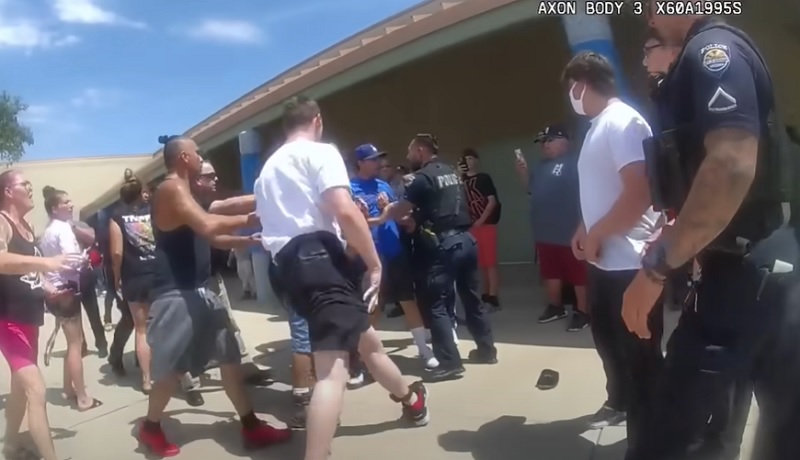
One of the most unseemly aspects of crowd behavior in recent years is when bystanders not only fail to try to help or rescue people in trouble, but stand back to video it to be the first to post the fight, crash, or fire online. It reminds me of my small town’s radio station when I was growing up, where the first caller with news got five bucks. The radio station almost always got the call before the police or fire department.
Bystander intervention has been a topic in crime prevention for a long time. When we see someone being victimized, suspect criminal activity human trafficking, or kidnapping, or notice predator-type behavior, a good citizen will do something. Those days are not entirely gone. There have been recent stories about police officers needing assistance when good citizens come to the rescue by pulling an officer from a crashed cruiser, assisting with a combative arrestee, or as in a recent case a pizza delivery man tripped a fleeing suspect without dropping his delivery.
While good citizens can be near when trouble happens, so can those with criminal motives. Since the advent of cell phones, a driver stopped by police can call for backup just as easily as the officer can. A Colorado Sheriff’s Department was recently criticized for what was portrayed on YouTube as an unnecessary use of force against a man who pulled in behind officers on a traffic stop. The man stated that it was his son who was pulled over by the deputies and he was just observing. A kerfuffle ensued and the observer was subject to some control shocks from a Taser. Hopefully, we’ve learned not to make judgments from an edited YouTube video posted by those who provide an anti-police narrative, but regardless of the outcome, the issue of people poised to interfere with law enforcement remains.
A recently passed law in Indiana allows police and fire personnel to establish a no- bystander zone up to 25 feet in an emergency incident area. Disregarding the zone after a warning can result in a misdemeanor charge. Whether this law will survive a court challenge remains to be seen. Agencies that have attempted to prohibit being filmed have been unsuccessful. Unless there is active interference, it is unlikely that a bystander will be stopped from live-streaming any activity that takes place in a public area, regardless of the risk to first responders or victims.
Officers who are distracted by hostile individuals or groups are at risk of losing control of an arrestee, being attacked by someone in the crowd, or having evidence hidden from them. Having confederates show up on a traffic stop is a significant tactical disadvantage for an officer. An arrestee being encouraged by bystanders might feel compelled to resist as a show for the audience. It can be a very volatile situation.
The price of freedom of speech and public conduct is often paid by police officers. It is legal to call officers vulgar names, use obscene gestures, approach them within attack distance, and scream and yell. A police officer must have nerves of steel to resist the natural survival urge to counter-attack and yet be hypervigilant that the verbal assaults do not become physical. The bystander’s emotional self-discipline is not well practiced nor legally required, whereas the police officer must remain stoic. An emotional bystander can become physically aggressive at a moment and cannot be merely disregarded by officers on the scene as a potential threat. A citizen may even be well-intentioned, not realizing that a person being arrested has committed a serious offense, was reported armed, or has been violently resisting.
While actions that comprise an attempt to influence an officer not to do their duty, actively interfere with the officer making an arrest or investigation, or resist or assault an officer are all criminal these charges are seldom pursued, giving increasing license to the threats.
The Indiana law is a reasonable one that protects citizens and first responders. Hopefully, the courts will not remove this protection.